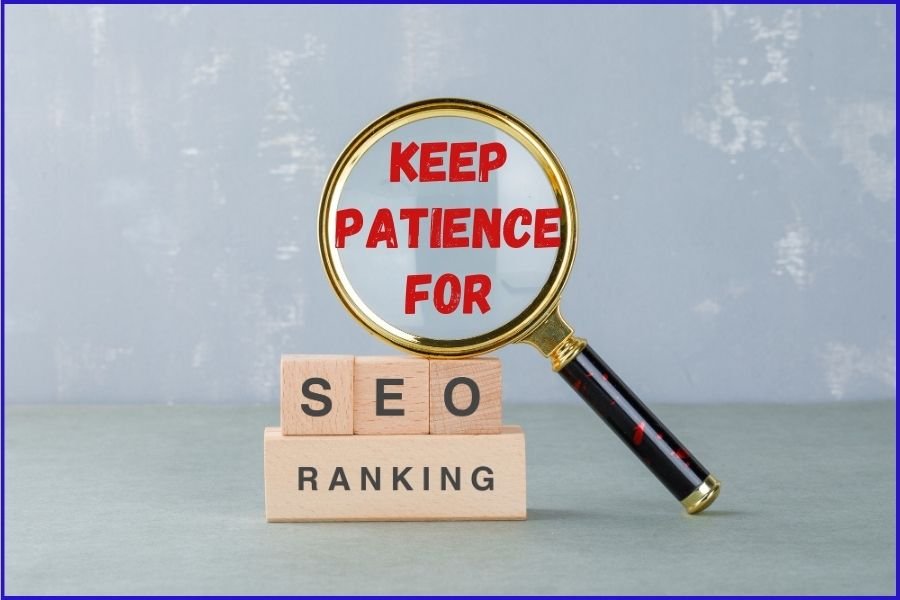Digital Marketing Blueprint: Transforming Real Estate Challenges into Success Stories
Introduction
In the fast-evolving landscape of the real estate industry, the integration of digital marketing strategies has become imperative for success. This digital marketing blueprint aims to unravel the intricacies of leveraging online tools and platforms to overcome challenges faced by real estate professionals, ultimately transforming these obstacles into success stories.
As technology continues to shape consumer behavior, a robust digital marketing approach becomes a linchpin for staying relevant and competitive in the real estate sector. This blueprint will explore key concepts, methodologies, and case studies to guide real estate professionals in navigating the digital realm effectively.
Brief overview of the real estate industry
Before delving into the specifics of digital marketing, it’s crucial to understand the current state of the real estate industry. Traditionally reliant on conventional advertising and word-of-mouth, the sector has witnessed a paradigm shift with the advent of digitalization.
The real estate industry encompasses diverse sectors, including residential, commercial, and industrial properties. Market trends, buyer preferences, and economic factors significantly influence this dynamic industry. In recent years, factors such as changing demographics, economic fluctuations, and global events have added layers of complexity, underscoring the need for adaptive marketing strategies.
Digital marketing, with its multifaceted tools, presents a transformative opportunity for real estate professionals to connect with a broader audience, streamline processes, and enhance overall efficiency. Understanding the nuances of the real estate market sets the stage for a comprehensive exploration of how digital marketing can be tailored to address the industry’s challenges and pave the way for success.
Importance of digital marketing in real estate
Digital marketing is the linchpin that connects the real estate industry with the contemporary consumer. The strategic implementation of digital marketing techniques can address the challenges faced by the sector and propel it towards unprecedented success. Here’s why digital marketing is indispensable:
1. Targeted Reach: Digital marketing enables precise targeting of potential clients. Through social media advertising, search engine optimization (SEO), and other online strategies, real estate professionals can reach a specific audience likely to be interested in their offerings. This targeted approach optimizes marketing efforts and ensures a higher return on investment.
2. Enhanced Visibility: In a crowded digital landscape, visibility is paramount. An effective digital marketing strategy can elevate a real estate brand’s online presence. Utilizing platforms like Google Ads and social media channels, real estate businesses can increase visibility among their target demographic, fostering brand recognition and trust.
3. Engaging Content: Compelling content is the cornerstone of successful digital marketing. From visually appealing property listings to informative blog posts, engaging content builds a connection with potential clients. Digital marketing allows real estate professionals to showcase properties creatively, making a lasting impression on their audience.
4. Analytics for Informed Decision-Making: Digital marketing tools provide invaluable insights through analytics. Real estate professionals can track website traffic, user engagement, and conversion rates. This data-driven approach empowers decision-makers to refine their strategies, allocating resources where they yield the best results.
5. Cost-Effectiveness: Compared to traditional marketing channels, digital marketing offers a cost-effective solution. Online platforms provide a range of budget-friendly options, allowing real estate businesses to maximize their reach without breaking the bank. This affordability makes it an attractive avenue for businesses of all sizes.
Pain Points in Real Estate Digital Marketing
In the dynamic landscape of real estate, digital marketing poses both opportunities and challenges. Understanding and addressing the pain points in real estate digital marketing is crucial for developing an effective strategy. One major challenge is the saturation of the online market, making it difficult for real estate businesses to stand out. Additionally, the industry’s complex regulatory environment and the need for localized targeting further complicate digital marketing efforts. Competition for keywords and online visibility adds another layer of difficulty, especially in highly sought-after markets.
1. Limited Online Visibility: Many real estate businesses struggle with establishing a robust online presence. With the ever-growing competition, being visible to potential clients is challenging.
2. Complexity of Targeting the Right Audience: Identifying and reaching the target audience can be intricate. Real estate caters to diverse demographics, and crafting a message that resonates with a specific group is a constant challenge.
3. Compliance and Regulations: Real estate marketing is bound by various regulations and compliance standards. Navigating these legalities while still creating compelling digital campaigns can be a tightrope walk.
4. Balancing Traditional and Digital Marketing: Striking the right balance between traditional marketing methods and the vast digital landscape is a common struggle. Real estate professionals often find it challenging to allocate resources effectively.
Solutions Provided by a Digital Marketing Company
Engaging a professional digital marketing company is a strategic move for real estate businesses looking to transform challenges into success stories. Such companies bring a wealth of expertise in navigating the intricacies of the online realm. They conduct in-depth market research to identify target audiences, analyze competitors, and optimize digital strategies for maximum impact.
1. Keyword Optimization: A digital marketing company will conduct thorough keyword research to ensure the focus keyword, “Digital Marketing,” is strategically integrated into content. This includes website copy, blog posts, and social media content, maintaining a keyword density between 0.5% and 1% for optimal search engine visibility.
2. Comprehensive SEO Strategies: Digital marketing experts employ comprehensive SEO strategies, including on-page and off-page optimization, to improve the website’s search engine rankings. This involves optimizing meta tags, headers, and image alt text, as well as building high-quality backlinks.
3. Content Creation: The company focuses on creating relevant and engaging content that resonates with the target audience. This may involve the development of blog posts, infographics, videos, and other multimedia content to showcase the unique selling points of a real estate business.
4. Social Media Management: Leveraging the power of social media, the digital marketing company will develop and execute a social media strategy tailored to the real estate industry. This includes regular updates, targeted advertising, and community engagement to build brand awareness and drive traffic.
5. Data Analytics: Utilizing advanced analytics tools, the digital marketing company monitors the performance of various campaigns. This data-driven approach allows for continuous optimization, ensuring that the digital marketing efforts are aligned with the evolving needs and preferences of the target audience.
By partnering with a digital marketing company, real estate businesses can navigate the complexities of the digital landscape, effectively transforming challenges into success stories and achieving sustainable growth in the competitive online market.
Comprehensive Online Presence
A pivotal aspect of the Digital Marketing Blueprint is establishing a robust online presence. This involves creating a cohesive brand image across various digital platforms. From social media channels like Facebook, Instagram, and Twitter to real estate-specific platforms like Zillow and Realtor.com, a comprehensive online presence ensures that potential clients encounter the brand consistently.
Through engaging content creation, including blog posts, videos, and infographics, a real estate business can position itself as an industry authority. The digital marketing strategy should extend beyond mere promotion to fostering meaningful interactions with the audience. This not only enhances brand credibility but also cultivates a sense of trust, a crucial factor in the real estate sector.
Website optimization for search engines
In the digital age, a real estate website serves as the virtual storefront, making website optimization for search engines imperative. The blueprint incorporates SEO techniques to enhance the website’s visibility on search engine results pages (SERPs). By strategically placing relevant keywords, including the focus keyword “Digital Marketing,” throughout the website’s content and meta tags, the site becomes more likely to appear in searches related to real estate services.
Optimizing website structure and improving loading speed are also crucial components. A user-friendly, responsive design not only improves the user experience but also contributes positively to search engine rankings. The blueprint emphasizes the importance of creating high-quality, informative content that not only attracts visitors but also encourages them to stay and explore.
Social media strategy development and execution
In the age of connectivity, social media stands as a potent force in the digital marketing landscape. A well-crafted social media strategy is essential for real estate professionals looking to not only survive but thrive in the competitive market. Digital marketing companies specialize in developing and executing robust social media strategies tailored to the unique needs of real estate businesses.
The process begins with a thorough analysis of the target audience and market trends. Leveraging platforms such as Facebook, Instagram, Twitter, and LinkedIn, digital marketers create engaging content that resonates with the target demographic. The strategy goes beyond mere presence, focusing on building meaningful connections, fostering community engagement, and driving user interaction.
Through targeted advertising campaigns, social media strategies enhance brand visibility and generate leads. These campaigns are optimized based on real-time analytics, ensuring that the marketing efforts are continually refined for maximum impact. The goal is not just to be present on social media but to leverage these platforms strategically, transforming them into powerful tools for brand building and lead generation.
Content marketing for increased visibility
Content marketing stands as a cornerstone in the digital marketing blueprint, especially in the real estate sector. The creation and dissemination of valuable, relevant, and consistent content serve as a catalyst for increased visibility and brand authority. Digital marketing companies excel in developing content strategies that align with the unique demands of the real estate industry.
The content creation process involves in-depth research into market trends, buyer behaviors, and industry developments. By understanding the target audience’s needs and preferences, digital marketers craft content that not only educates but also resonates with potential clients. This can include blog posts, articles, infographics, videos, and more.
The content is strategically distributed across various online channels, including websites, social media platforms, and industry-specific publications. Search engine optimization (SEO) techniques are employed to ensure that the content ranks prominently in search engine results, driving organic traffic to the real estate website. Through a cohesive content marketing strategy, digital marketing companies elevate the online visibility of real estate businesses, establishing them as authoritative voices within the industry.
Conclusion
In conclusion, the “Digital Marketing Blueprint: Transforming Real Estate Challenges into Success Stories” underscores the pivotal role of digital marketing in reshaping the landscape of the real estate industry. The digital realm has proven to be a game-changer, offering innovative solutions to overcome the challenges that have long hindered traditional real estate approaches. As we navigate this dynamic intersection of technology and real estate, the significance of a well-crafted digital marketing strategy becomes increasingly evident.
In this transformative journey, RK Media Digital Marketing Agency emerges as a beacon of expertise, providing comprehensive solutions that bridge the gap between real estate challenges and success stories. Their commitment to harnessing the power of digital platforms, data analytics, and targeted campaigns exemplifies the blueprint for success in the contemporary real estate market. By embracing the ever-evolving landscape of digital marketing, real estate professionals can not only overcome challenges but also unlock unprecedented opportunities, ensuring a future where success stories become the new norm. In essence, the digital marketing blueprint presented here, enriched by the expertise of RK Media Digital Marketing Agency, paves the way for a thriving and resilient real estate industry in the digital era.
Image Reference: Freepik
Disclaimer: All trademarks, logos, and brand names are the property of their respective owners. All company, product, and service names used in this website are for identification purposes only. Use of these names, trademarks, and brands does not imply endorsement.

















